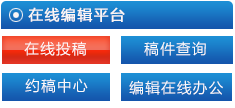临床护理
协同护理对急性脑卒中患者自我护理能力的影响
杨柳
【摘要】 目的 研究协同护理对急性脑卒中患者自我护理能力的影响。方法 选取2020年3月至2021年3月在我院就诊的急性脑卒中患者150例,随机均衡分为两组,每组75例,对照组给予常规干预,观察组行协同护理,分析组间干预价值。
【关键字】 急性脑卒中,协同护理,自我护理能力,满意度,生活质量
中图分类号:文献标识码:文章编号:
[Abstract]Objective To study the effect of collaborative nursing on self-care ability of patients with acute stroke. Methods From March 2020 to March 2021, 150 patients with acute stroke in our hospital were selected and randomly divided into two groups, 75 cases in each group. The control group was given routine intervention, and the observation group performed collaborative nursing, and the value of intervention between groups was analyzed. Results The self-care effect and satisfaction between the groups were compared, the observation group was better than the control group (P<0.05). There was no significant difference in the self-care ability scale, negative emotions, knowledge of diseases, and quality of life scores between the two groups before the intervention (P>0.05). After the intervention, the observation group had higher scores of self-care ability scale, knowledge of diseases, and quality of life, while the negative emotion scores were lower, which was significantly different from the control group (P<0.05).
在临床上,脑卒中属疑难重症的一种,较为常见,病死率、致残率均较高。在患病后,患者机体常有功能障碍存在,负面情绪较为严重,带给其家庭的负担也较为沉重[1]。针对脑卒中患者来讲,自我护理能力十分关键,可在很大程度上使家庭矛盾得以缓解,康复效果得到保障,有助于降低复发风险。协同护理开展护理主动性策略,家属、患者积极性得到充分调动,积极参与干预工作,有助于强化患者的自护技能、心理、认知,使其信心得以树立[2]。本旨在探讨协同护理对急性脑卒中患者的疗效,现报道如下。
1 资料与方法
1.1一般资料 2选取2020年3月至2021年3月在我院就诊的急性脑卒中患者150例,随机均衡分为两组,每组75例。其中对照组男36例,女39例,年龄54~76岁,平均(59.28±4.14)岁;观察组男37例,女38例,年龄52~76岁,平均(58.63±4.06)岁。对比组间一般资料,差异无统计学意义(P>0.05)。










